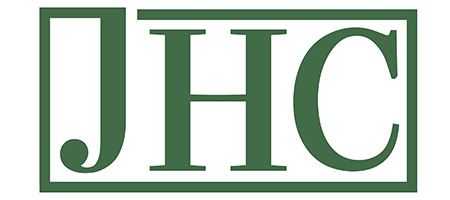It is important that our clients adhere to the sales tax implications in all areas. We will gladly help your business by researching or sharing any information needed in order to properly prepare a sales tax return both cost-effectively and timely.

Sales tax is paid to the government for the sale of certain goods and services. The laws usually allow the seller to collect the money for the tax from the consumer at the time that the item was purchased. When the tax is paid to the appropriate governing body by the consumer, it’s often called a “use tax.” The laws will often provide exemption of certain goods and services from sales and use taxes (such as food, education, and medicine). A value-added tax (VAT) can also be collected on goods and services that are related to sales tax.
Types of Sales Tax
Some of the types of sales tax include the following:
- Manufacturer’s Sales Tax — A tax on the sale of goods by manufacturers and producers.
- Wholesale Sales Tax — A tax on the sale of goods by wholesalers when they’re packaged and labeled so it’s ready to be shipped and delivered to consumers.
- Retail Sales Tax — A tax on the sale of retail goods from consumers and industrial users.
- Gross Receipts Tax — This can be levied on all the sales of a particular business, and it has often been criticized because of its “cascading” or “pyramiding” effect (when an item is taxed repeatedly as it moves from production to the final retail sale).
- Excise Tax — This tax only applies to certain types of products (such as gasoline or alcohol), and it’s usually imposed on the producer or wholesaler than on the retailer.
- Use Tax — This is imposed directly on consumers who purchase goods without sales tax. It often applies if an item is purchased from a vendor that’s not under the jurisdiction of the taxing authority (such as in another state). Use tax is usually imposed by states that have a sales tax but are only enforced for the purchase of large items (such as automobiles and boats).
- Value-Added Tax (VAT) — A tax that’s charged on all sales, which avoids the need for a system of resale certificates. It also avoids the problem of cascading taxes, because it’s only applied to the difference (called “value added”) between the price that’s paid by the first purchaser and what is paid by each subsequent purchaser on the same item.
- Turnover Tax — This is similar to sale tax, except that it applies to intermediate and capital goods as an indirect tax.
Most areas in the U.S. and around the world have some type of sales tax or value-added tax at nearly every government level.
The Difference Between Sales Tax and Use Tax
Conventional or retail sales taxes are only charged to the consumer for a specific good or service. Because most of today’s goods pass through a number of manufacturing stages (which are often handled by different entities) a good amount of documentation is needed to prove who is liable for sales tax. Different jurisdictions can change different levels of sales tax. States, counties, and municipalities can also levy sales tax on their own. This can make the purchase price of a single item be different in various locations.
Use taxes are usually set at the same rate as sales tax, but they can be hard to enforce (except when they apply to large purchases of tangible goods). If a resident of Georgia buys a car in Florida, the buyer would be required to pay the sales tax in Georgia as if it was being bought in that state. Comparison shoppers may use the net of tax price to see if purchasing an item in one location is better that buying it in another.
The Difference Between Sales Tax and Value-Added Tax
Sales tax is different from value-added tax, because it’s only collected once. Value-added tax, on the other hand, is collected throughout the production process. The United States is one of the few developed countries that still use conventional sales tax. Many countries outside the U.S. have adopted value-added tax model, where a percentage of the value added on a particular good is taxed at every level of its production all the way to the final sale.
A yarn maker would pay a percentage on the difference between what they charge for the yarn and what they pay for wool, while a clothing manufacturer would pay the same percentage on the difference between what they charge for socks and what they pay for the yarn. It’s a tax that’s imposed on the gross margins of every company instead of imposing it on the final consumer, and its purpose is to avoid double taxation (which can cascade through various levels of production).
Sales Tax FAQ
Texas sales tax is any tax that’s paid to state and local authorities in the state for the sale of certain goods and services. It was first adopted in 1961 and was known as the “Limited Sales and Use Tax.” It’s usually collected from the buyer when the sale is made. So if you’re a business owner who is selling taxable goods and services, you’re acting as an agent of the state by collecting tax from purchases and passing it to the appropriate state or local tax authority. It’s also your responsibility to manage the taxes you collect so you can stay in compliance with state and local tax laws.
Here are some common questions people ask about sales tax in Texas.
Unlike many other taxes in the US, sales tax isn’t controlled by the federal government. Each state determines whether it can impose a sales tax. It’s also up to each state to set its own rates and taxability rules. Cities and counties can also levy their own sales tax on top of the state rate.
Cigarette distributors pay cigarette tax when they receive cigarettes that they plan to sell, while customers pay sales tax when they buy them from the retailer. E-cigarettes, however, don’t meet the statutory definition of a cigarette. So, they’re not subject to the cigarette tax. They are still subject to state and local sales tax.
The sale, storage, use, and consumption of firearm safety equipment are completely tax-free. These items can include but may not be limited to:
– Gun lock boxes.
– Gun safes.
– Barrel locks.
– Trigger locks.
It can also include safety training manuals or any other electronic publications, as well as any other items that are meant to ensure the safe handling or storage of a firearm.
Whether you sell taxable items or purchase them for storage, use, or consumption, you’re required to keep business records so any authorized representative from the Texas Comptroller’s Office can verify the accuracy of your sales and use tax returns. Not keeping or providing these records can lead to the Comptroller’s office taking certain actions (which can include the elimination of tax liability or a suspension of the sales tax permit to which you have been issued).
Your records must reflect any total gross receipts from sales, rentals, leases, as well as any taxable services or labor. It must also reflect the total purchases of taxable items. All of the records you keep must substantiate any claimed deductions or exclusions.
You will need to keep sales and use tax records for at least four years (unless the Texas Comptroller gives you authorization for earlier destruction). This includes all records related to transactions that involve sales or use tax liability. If the Comptroller is auditing your records, you should keep them for that period until the audit has been completed.
You must have a Texas sales and use tax permit if you’re an individual, partnership, corporation, or other legal entity that’s involved in business and you’re involved in any of the following:
– The sale of tangible personal property in Texas.
– The rental or leasing of tangible rental property in Texas.
– The sale of taxable services in Texas.
You must also have a sales and use tax permit if you’re selling or leasing tangible property or taxable services to customers in Texas from an out-of-state business and have revenue coming from the state that’s at least $500,000 in the last 12 months.
The sale of certain services (such as amusement, cable television, data processing, and telecommunication services) is subject to sales and use tax in the State of Texas.
A prepayment discount is a 1.25% discount that monthly or quarterly taxpayers can take in addition to the 0.5% timely filing discount for filing timely reports and making timely payments. This discount can be taken if they do any of the following:
– Prepay a “reasonable estimate” of their state and local sales and use tax liability for the reporting period.
– File a prepayment report if they’re paying by mail.
– File their monthly or quarterly report that shows the total tax amount due on or before the reporting period’s due date and pay the balance due for that period.
– The prepayment report and tax prepayment for a monthly filer are due on or before the 15th day of each month. Quarterly payers must have their reports and tax prepayment sent on or before the 15th day of the second month of each quarter.
If you’re looking for a CPA in Corpus Christi that can help you with your sales tax system, be sure to reach out to Jennings & Hawley.
